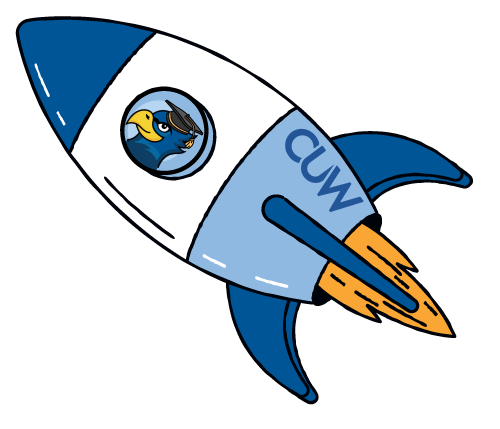The PhD curriculum encompasses three core areas of concentrated study that will build your capacity to serve as a qualified leader. The colloquium courses provide a platform for scholarly discussions and in-depth research analysis.
Credits
60
A research-intensive PhD program that will build your expertise and confidence to be an influential leader.

First two classes free for LCMS workers!
For those working for recognized service organizations of the LCMS (schools, church workers...), the LICI Launch Grant is for you! Get started with your Leadership in Innovation and Continuous Improvement EdD or PhD at CUW and pay no tuition for the first two courses. Complete the Christian Community Uncommon Scholarship application below to get started.
Become a research-driven, visionary leader who can transform organizations and contribute new knowledge to your field. Concordia’s Ph.D. in LICI equips scholars, educators, executives, and innovators to lead with clarity, creativity, and Christian conviction.
Virtual TourThe Ph.D. in LICI is a flexible, faith-shaped doctoral journey for working professionals who want to deepen their scholarly expertise, publish research, and influence systems across education, business, healthcare, ministry, and nonprofit settings.
This program allows full-time professionals to advance academically without pausing their careers. You will strengthen your expertise in Leadership, Research, and Improvement Science & Innovation—three pillars that power meaningful, evidence-based change.
Alternative Pathway: Consider the practice-focused Ed.D. Leadership in Innovation and Continuous Improvement degree instead.
The LICI PhD program is inspired by a Christian worldview, stewardship, and service. The mission of this program is to prepare scholarly leaders who will bring positive and impactful change in their vocations.

Starting two year's ago, the Concordia Summit for Educators and Leaders, has returned due to 'popular demand,' according to Dr. Jim Pingel, dean of the School of Education and founder of the event. Read More
Meet Dawn Randall, a multilingual teacher, who recently graduated in the Leadership in Innovation...
After graduation, Sam plans to complete his MBA and pursue a business-related job before...
Meet Lidalyn “Chiper” Tennessen, who once thought she would never get in to college,...
Are you ready to take the next step in your educational career? If you’re an experienced...
Advance your evidence-based decision-making skills to be more impactful in business.
The Christian Leadership Master of Science in Education is designed for educators and ministry leaders seeking faith-driven administrative roles in Christian schools.
Step into school leadership with your choice of four Wisconsin licensure options or pair any license with your master’s degree in educational administration
Our team is standing by to assist you with additional program details, financial aid options, and admissions questions.
Loading...